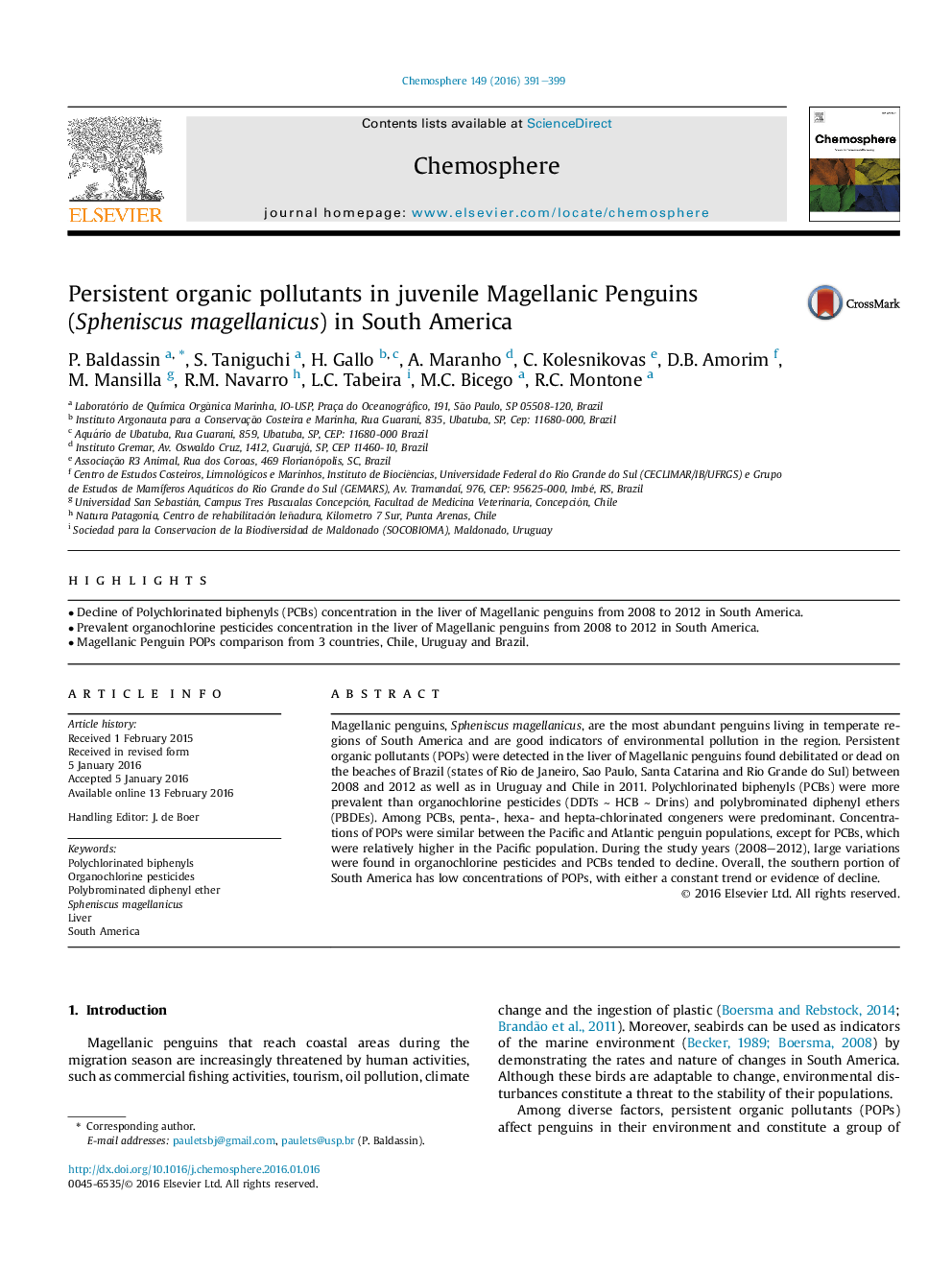| کد مقاله | کد نشریه | سال انتشار | مقاله انگلیسی | نسخه تمام متن |
|---|---|---|---|---|
| 4407896 | 1618822 | 2016 | 9 صفحه PDF | دانلود رایگان |

• Decline of Polychlorinated biphenyls (PCBs) concentration in the liver of Magellanic penguins from 2008 to 2012 in South America.
• Prevalent organochlorine pesticides concentration in the liver of Magellanic penguins from 2008 to 2012 in South America.
• Magellanic Penguin POPs comparison from 3 countries, Chile, Uruguay and Brazil.
Magellanic penguins, Spheniscus magellanicus, are the most abundant penguins living in temperate regions of South America and are good indicators of environmental pollution in the region. Persistent organic pollutants (POPs) were detected in the liver of Magellanic penguins found debilitated or dead on the beaches of Brazil (states of Rio de Janeiro, Sao Paulo, Santa Catarina and Rio Grande do Sul) between 2008 and 2012 as well as in Uruguay and Chile in 2011. Polychlorinated biphenyls (PCBs) were more prevalent than organochlorine pesticides (DDTs ∼ HCB ∼ Drins) and polybrominated diphenyl ethers (PBDEs). Among PCBs, penta-, hexa- and hepta-chlorinated congeners were predominant. Concentrations of POPs were similar between the Pacific and Atlantic penguin populations, except for PCBs, which were relatively higher in the Pacific population. During the study years (2008–2012), large variations were found in organochlorine pesticides and PCBs tended to decline. Overall, the southern portion of South America has low concentrations of POPs, with either a constant trend or evidence of decline.
Journal: Chemosphere - Volume 149, April 2016, Pages 391–399